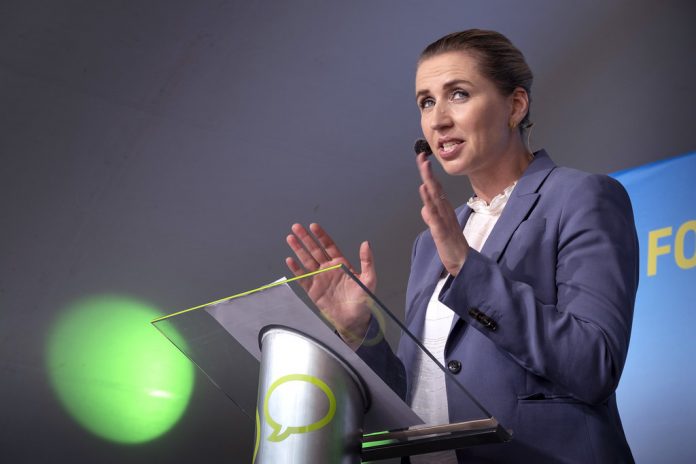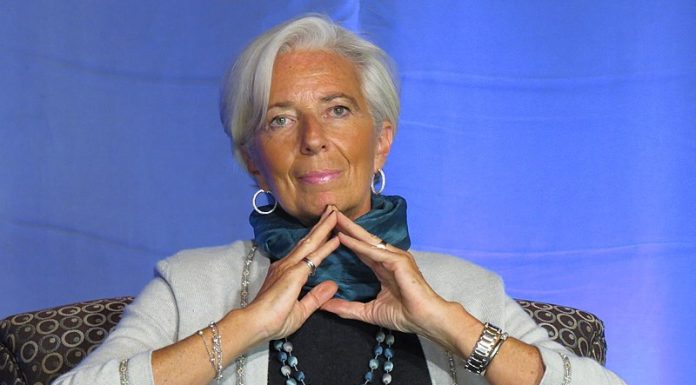
By Swedish MEP Charlie Weimers (SD – ECR)
Denmark gets it: As the social democratic governing party’s immigration spokesman, MP Rasmus Stoklund, puts it: “if you apply for asylum in Denmark, you know that you will be sent back to a country outside Europe”. When implemented, Denmark will have removed itself from the asylum shopping system, putting an end to exploitation of Europe’s outdated asylum policies.
The reality is that many of those seeking asylum in Europe are economic migrants without grounds for protection who, after a long and costly asylum process, see their application refused. Unfortunately, only a fraction of those refused asylum return home. A large and growing group remain in the EU and live in some kind of shadow society, working illegally and sometimes even committing crimes to make a living.
With broad bipartisan support, with 70 lawmakers voting in favour and 24 against, the Danish parliament has approved a plan to replace asylum processing in Denmark with reception centres in countries outside of Europe, for example in Africa. If an asylum seeker comes to Denmark and applies for asylum, the person will be transferred to such a reception centre. If the person is found to be in need of protection, he or she will be granted protection in the country hosting such a reception centre and will therefore not be granted asylum in Denmark. This means that, if successfully implemented, no more asylum seekers would come to Denmark, apart from those accepted under the UN’s quota system.
If the asylum application of asylum seekers is rejected, those that have been judged not to have a right to asylum will no longer be able to travel to another EU member state or linger around in Denmark, since they would not be physically present in Europe.
Responding to critics, the Danish government has stated that “we believe that the Danish proposal on externalization lives up to the spirit and the fundamental principles of the international system for the protection of refugees, based on the 1951 Refugee Convention’”
In April, the Danish immigration minister, Mattias Tesfaye, whose father was an Ethiopian immigrant, already managed to sign a non-binding memorandum between Denmark and Rwanda to co-operate on asylum and migration, something which has fueled speculation that it could lead to the creation of an overseas asylum processing centre. According to the memorandum, it is “the vision of the Danish Government that the processing of asylum applications should take place outside of the EU in order to break the negative incentive structure of the present asylum system.”
The European Commission’s reaction is disappointing
Initially, the European Commission’s response to the bipartisan vote in the Folketing was tight-lipped, stating that it would analyse the situation. However, this weekend, the Commissioner responsible for Migration, – Ylva Johansson, a Swedish social democrat, – came out savaging the Danish plan, calling it “bad”, “completely unrealistic” and “a flagrant crime against basic human rights” adding she “will never accept deviations from the Geneva Convention and EU-treaties.”
Commissioner Johansson is simply wrong in her assessment that the Danish law would not be legally sound or that it would be at odds with international conventions on asylum. Under the Danish plan, asylum will be examined by Denmark, which has a much stronger tradition of rule of law than many EU member states or the EU itself, for that matter. Few countries in the world handle asylum procedures better than the Danes. Sweden’s asylum procedure, for example, has been an endless series of horror stories, with widespread activism surrounding deportation decisions and a number of incidents involving ties between asylum seekers and officers at the Swedish migration agency – never mind how asylum seekers need to wait forever to receive a response in Greece’s reception centres.
If the entire EU adopted the Danish plan, economic migrants would not be able to abuse the asylum process. No longer would migrants and refugees alike risk their lives on a dangerous journey across the Mediterranean. The Australian government introduced a similar plan in 2013, which has reduced the number of migrants drowning in Australian waters to zero.
The former Prime Minister of Australia, Tony Abbott, was right when stating: “The only way you can stop the deaths is to stop the people smuggling trade. The only way you can stop the deaths is in fact to stop the boats.”
Current policies creates incentives to remain in Europe illegally
Research shows that a major pull factors for illegal migration are the prospect of being able to live and work somewhere without legal status and the size of the diaspora from the same country of origin. Swedish Social Democrats like Commissioner Johansson have created incentives to remain illegally through regular amnesties. These sent the signal that anyone attempting the dangerous journey can stay, work and enjoy the benefits of the welfare state, even if their asylum request is rejected.
Instead of imposing Sweden’s left-wing migration policy on Europe, the European Commission should be coordinating with EU Member States to diminish those pull factors.
If the EU does not apply the principle of seeking asylum in the first safe country, migrants will go to the country with the most generous welfare policies and the most lax asylum requirements. Even worse, under Commissioner Johansson’s “new Pact for Migration and Asylum”, those seeking asylum for reasons other than genuine persecution will be able to choose the country where they want to reside, depending on family or educational ties, resembling some kind of welfare menu. All of this would only exacerbate pull factors.
Denmark has taken the lead on this issue by setting out a positive and pragmatic plan. Rather than rejecting it outright, the EU should immediately get to work, studying the feasibility of scaling up the Danish plan to the European level. I look forward to EU Commissioner Johansson announcing: “If you apply for asylum in Europe, you know that you will be sent back to a country outside Europe”.
Disclaimer: www.BrusselsReport.eu will under no circumstance be held legally responsible or liable for the content of any article appearing on the website, as only the author of an article is legally responsible for that, also in accordance with the terms of use.












